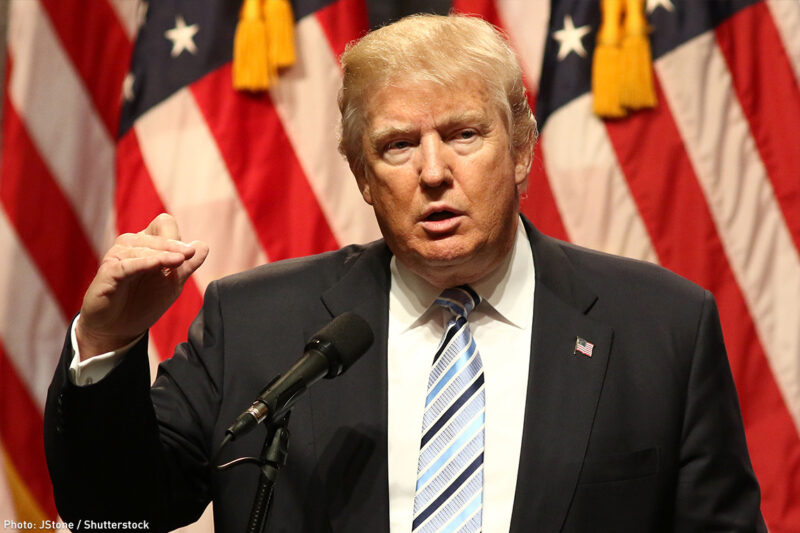
With just the stroke of a pen, President Trump could provide the public with the information necessary to assess his claims that the Obama administration improperly surveilled him and his associates. He has a responsibility to do so, given that these concerns strike at the heart of whether liberties — including the right to free elections and those enshrined in the Fourth Amendment — have been compromised.
This week, former Trump campaign advisor Carter Page joined several officials claiming that Trump campaign officials were spied on for political purposes. These comments, following a string of allegations from President Trump that he was wiretapped, came on the heels of reports that the FBI had secured a secret court order to monitor Carter as part of its investigation into the campaign’s ties to Russia.
There’s no reason why the public should be in the dark about the Trump campaign’s alleged ties to Russia, Russia’s scheme to undermine our democracy, or questions surrounding whether the Obama administration surveilled Trump campaign officials.
That’s why, as a start, we are calling on President Trump to immediately declassify any court orders or other materials that he claims provided the basis for improper spying on his campaign officials. To avoid concerns that he is cherry picking information that suits him, he should release all relevant documents, while taking the steps necessary to appropriately protect individuals’ privacy. This is an action that President Trump can take unilaterally without approval from Congress or intelligence agency officials.
With minor exceptions, the entire classification process is governed by a series of executive orders. These executive orders designate President Trump and Vice President Pence as “original classification authorities” who have the power to make public documents that are classified by officials they supervise. Additionally, President Trump alone could modify, discard, or amend these executive orders to ensure declassification of these documents or others that are in the public interest.
If declassified, these documents would reveal the extent to which intelligence agencies surveilled individuals associated with the Trump campaign, the evidence they put forward to justify such targeting, and the legal authorities they relied on. This would give the American people the opportunity to assess for themselves whether the Trump campaign was improperly surveilled. It would also shed light on whether there are legitimate concerns that his campaign’s ties to foreign officials played a role in undermining our democratic process.
In response to the recent controversies, Mike Pence has said, “The American people have a right to know if there was surveillance of any private citizen in this country.”
We agree.
That’s why, in addition to the actions above, President Trump should also take steps to provide individuals the opportunity to find out if they were surveilled, and, if so, to obtain the legal orders used for these activities. Currently, Americans have no practical way to obtain this information, and without it, it is extraordinarily difficult to challenge the government’s conduct in court.
To remedy this excessive secrecy, Trump should fully commit to releasing statistics regarding the number of Americans whose information is collected under existing surveillance practices. For example, Sen. Ron Wyden (D-Ore.), civil liberties organizations, and 14 members of the House Judiciary Committee have repeatedly asked the intelligence agencies to release information regarding the number of Americans whose information is collected without a warrant under Section 702 of the Foreign Intelligence Surveillance Act. This surveillance law is used to collect hundreds of millions of communications every year from individuals around the world. Last week, the chairman of the House Judiciary Committee, Bob Goodlatte (R-Va.), and ranking committee member John Conyers (D-Mich.) reaffirmed the importance of having this information to fully inform the decision Congress must make later this year over whether to reauthorize this controversial authority.
The ACLU has also filed a Freedom of Information Act request for this information. However, neither the ACLU nor members of Congress have received information in response to this fundamental question.
The Trump administration and campaign officials have insisted they have been unfairly targeted by intelligence agencies and did not improperly collude with Russian officials to undermine the election. It is past time for President Trump to produce the evidence that would allow the public to assess whether this is true, shed light on the extent of his campaign’s ties to Russia, and provide insight into efforts by Russia to undermine the election process.
The public has the right to decide for themselves whether or not some of our core democratic liberties have been weakened.


